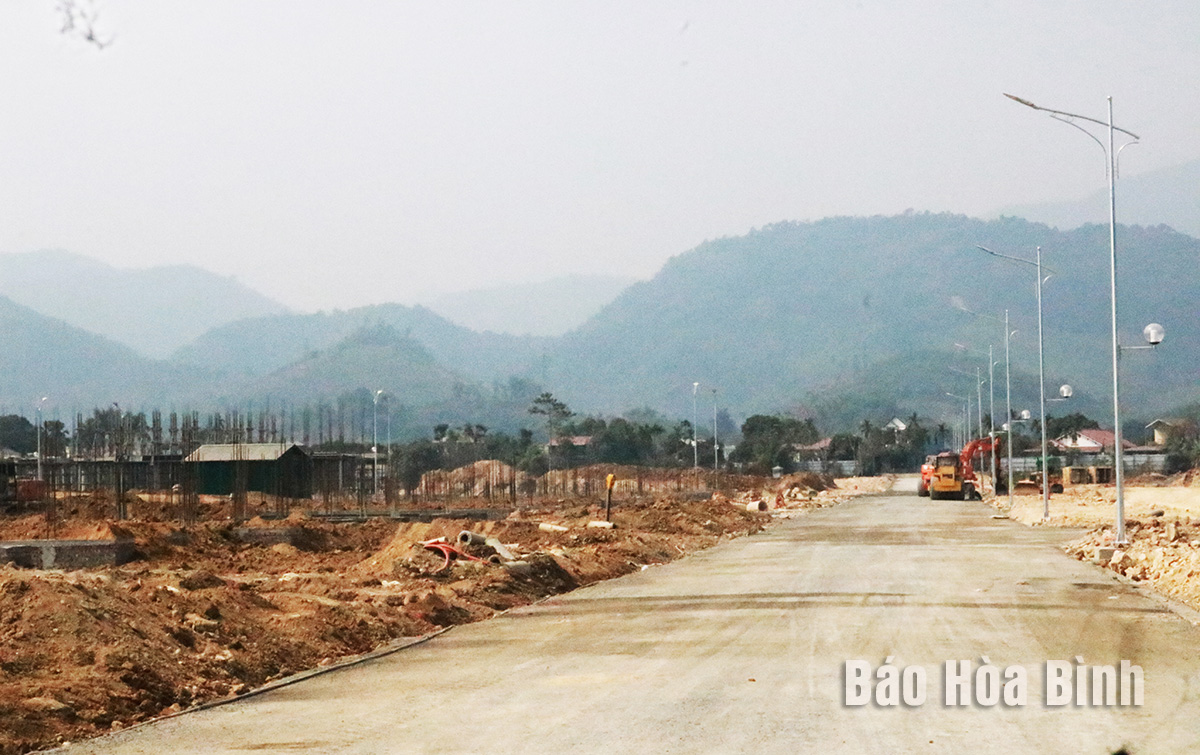
The tax sector of Hoa Binh province has proactively implemented key tasks and solutions since early 2025 to complete the state budget revenue target of 5.8 trillion VND (227.71 million USD) assigned by the Government and the Ministry of Finance; and 6.8 trillion VND set by the provincial Party Committee, People's Council, and People's Committee. Land-related revenue remains a crucial source in the locality’s state budget plan in 2025.
The Trung Minh A New Urban Area project in Hoa Binh city is a key
project that has contributed over 1 trillion VND to the state budget.
According to the provincial Tax Department, special attention
has been paid to closely monitoring collection progress, identifying potential
revenue sources, and proposing effective management solutions. Based on
analysis, evaluation, and forecasting, the department will pinpoint untapped
revenue sources and areas of tax loss, making recommendations to the provincial
People's Committee to improve collection efficiency and strengthen revenue
management.
For revenue from land use, to ensure effective management of this domain,
relevant agencies are actively coordinating efforts to review and
comprehensively manage all collections. Attention has been paid to
managing businesses with land lease projects; reviewing and compiling a list of
projects due for land rental price adjustments; and ensuring timely issuance of
new land rental rates as a basis for managing land-related revenue in the
province.
In 2024, thanks to the effective implementation of tax management measures, the
locality’s land use fee revenue hit approximately 2.8 trillion VND, surpassing
the Government’s target by 240% and that of provincial People's Council by 40%,
and surging by 87.8% compared to 2023. The 2024 state budget revenue recorded
the highest level ever, reaching nearly 7.56 trillion VND, exceeding the target
assigned by the Prime Minister by 87%, and 50% higher than the previous year.
In January 2025, the province's socio-economic situation showed
many positive signs, raising expectations for strong development and creating
important momentum for achieving the state budget revenue target in 2025.
The wholesale revenue exceeded 2.35 trillion VND, up 15.41% year-on-year. Total
retail sales increased by 17.48%; revenue from lodging and catering services
rose by 7.68%; and the industrial production index grew by 2.82%.
The province’s state budget revenue in January
was over 1.37 trillion VND, more than doubling compared to the same period last
year and equivalent to 19.43% of the target set by the provincial People's
Council.
To achieve the 2025 state budget revenue target, the local
authorities will implement decisive and comprehensive measures to manage and
increase revenue, focusing on mobilising tax, fee, and charge revenues while
effectively implementing taxpayer support policies.
Priority will be given to revenue from land and mineral resources, attracting
investment, improving the business and investment environment, and promoting
economic growth.
In Lac Thuy district, communes have been succeeded in promoting their One Commune-One Product (OCOP) products while others are still struggling to position their typical farming products in market. Some communes in the district still fail to have their products met OCOP programme’s requirements, while others have seen their certifications expired.
The inspectorate agency of Hoa Binh province has issued Official Dispatch No. 1090/TTr-PCTN to provincial departments, agencies, localities, business associations, enterprises, and investors regarding measures to improve informal component indexes of the Provincial Competitiveness Index (PCI).
Hoa Binh is taking concrete steps to improve its investment environment, with a strong focus on supporting businesses, settling obstacles for strategic investors, and creating opportunities for robust development in the coming years.
Under the blazing early summer sun, the construction site of Nhuan Trach Industrial Park (IP) in Luong Son district is abuzz with activities from dawn to dusk, a testament to the determination of the investor to meet their construction targets on schedule.



